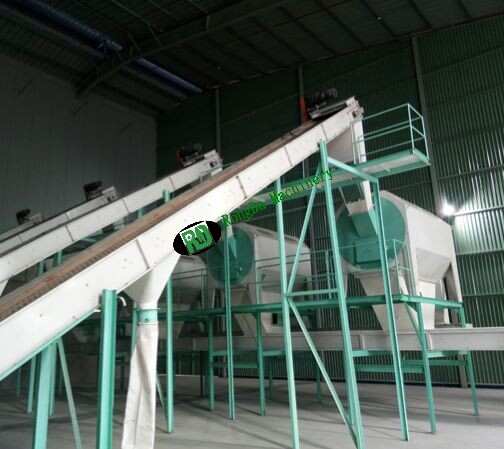Welcome to Rongda Machinery Co., Ltd
Toggle Navigation
The quest for sustainable energy alternatives has reached a pivotal moment. As environmental consciousness shapes global policy and consumer behavior, one renewable resource is capturing widespread attention: biomass pellets. These compressed organic fuel units represent more than just an alternative energy source—they embody a paradigm shift toward circular resource management and carbon-conscious living.

International climate commitments are accelerating biomass pellet adoption across multiple sectors. The Paris Agreement's influence extends beyond policy documents, creating tangible market opportunities for renewable fuel technologies. European nations lead this transformation, with Germany and Denmark pioneering large-scale biomass integration into their energy grids.
Market volatility in traditional energy sectors has prompted businesses to diversify their fuel portfolios. Biomass pellets provide price predictability that fossil fuels cannot match, offering companies budget certainty in an uncertain economic climate. This stability factor often proves more compelling than environmental benefits alone.
Modern biomass pellet production transforms previously discarded materials into premium fuel products. Agricultural residues, sawmill waste, and even urban green waste find new life through pelletization processes. This resource recovery approach addresses waste management challenges while creating economic value from materials once considered burdensome.
Pelletization significantly enhances biomass fuel properties. The compression process increases energy density by approximately 600% compared to loose organic matter, creating fuel units with consistent moisture content and predictable burning characteristics. This standardization enables automated feeding systems and precise combustion control.
Transportation and storage costs decrease dramatically with pelletized biomass. Standard pellet dimensions allow efficient bulk handling, while reduced moisture content prevents degradation during extended storage periods. These logistical improvements make biomass viable for markets previously inaccessible due to transportation constraints.
Modern pellet systems achieve combustion efficiencies exceeding 85%, rivaling natural gas appliances. Advanced pellet boilers automatically adjust air-to-fuel ratios, optimizing performance while minimizing emissions. This technological sophistication makes biomass accessible to users who demand convenience alongside environmental responsibility.
Initial equipment investments for pellet systems have decreased substantially as manufacturing scales increase. Residential pellet stoves now compete directly with traditional heating systems on upfront costs, while operational savings provide long-term financial benefits. Commercial and industrial users benefit from fuel cost stability that supports accurate long-term budgeting.
Home heating represents biomass pellets' most visible application. Modern pellet stoves integrate smart controls, programmable thermostats, and smartphone connectivity, appealing to technology-conscious consumers. Rural communities particularly benefit from pellet systems, achieving energy independence while supporting local agricultural economies.
Manufacturing facilities increasingly incorporate biomass into their energy strategies. Food processing plants, textile manufacturers, and chemical facilities use pellet-fired systems for process heat and steam generation. These industrial applications demonstrate biomass viability beyond simple space heating.
Electric utilities blend biomass pellets with coal in existing power plants, reducing carbon intensity without requiring complete infrastructure replacement. Dedicated biomass power plants provide baseload renewable electricity, complementing intermittent solar and wind resources.
Research initiatives explore non-traditional biomass sources, including algae cultivation and municipal solid waste processing. These emerging feedstocks could exponentially expand biomass availability while addressing additional environmental challenges.
Internet of Things (IoT) sensors optimize pellet production processes, monitoring moisture content, density, and energy content in real-time. Artificial intelligence applications predict equipment maintenance needs and optimize combustion parameters automatically.
Asian markets present enormous growth potential as industrializing nations seek alternatives to coal dependency. Countries like South Korea and Japan import increasing volumes of biomass pellets, creating opportunities for international producers and exporters.
Companies adopting biomass pellets strengthen their environmental credentials while achieving operational cost reductions. Corporate sustainability reports increasingly feature renewable energy procurement as a key performance indicator, making biomass adoption strategically advantageous beyond immediate cost considerations.
Homeowners choosing pellet heating systems gain energy independence, reduced utility bills, and enhanced property values. The satisfaction of using locally-sourced, renewable fuel appeals to environmentally conscious consumers willing to invest in sustainable technologies.
Government incentives, tax credits, and renewable energy mandates create favorable conditions for biomass adoption. Forward-thinking organizations position themselves advantageously by adopting biomass before regulatory requirements make transition mandatory.

Biomass pellets represent a convergence of environmental necessity, economic opportunity, and technological capability. Their adoption addresses multiple challenges simultaneously: reducing greenhouse gas emissions, managing organic waste streams, supporting rural economies, and providing energy security.
The transition to biomass-based energy systems requires commitment from producers, consumers, and policymakers. However, the benefits—environmental, economic, and social—justify this investment in our collective future. As biomass pellet technology continues advancing and markets mature, these compact fuel units will play an increasingly vital role in global energy strategies.
The biomass revolution has begun. Forward-thinking individuals and organizations recognizing this opportunity today will benefit from sustainable, reliable, and cost-effective energy solutions tomorrow.